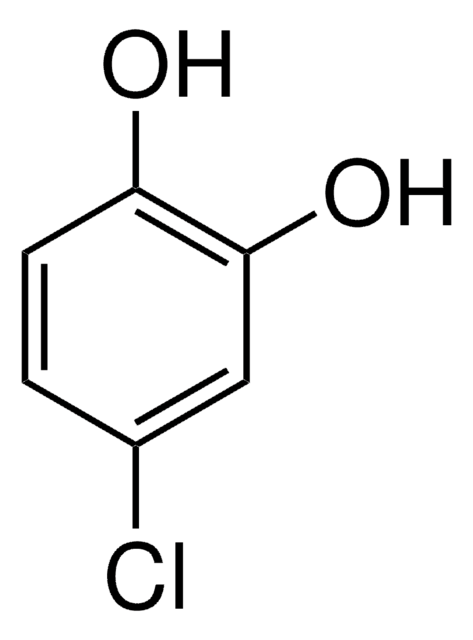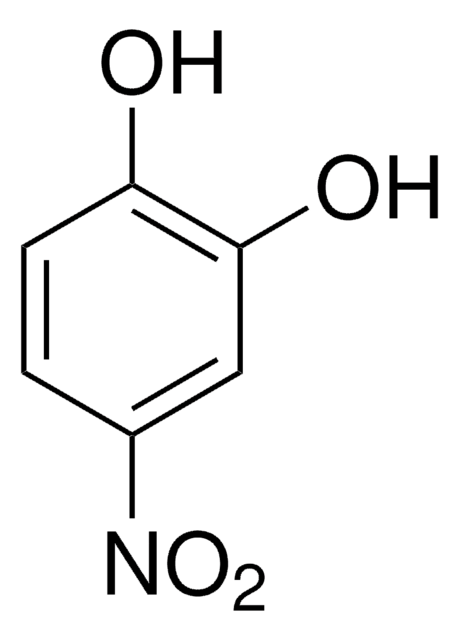C9510
Pyrocatechol
≥99%
Sinónimos:
1,2-Benzenediol, 1,2-Dihydroxybenzene, 2-Hydroxyphenol, Catechol
About This Item
Productos recomendados
biological source
synthetic (organic)
Quality Level
vapor density
3.8 (vs air)
vapor pressure
1 mmHg ( 75 °C)
10 mmHg ( 118.3 °C)
assay
≥99%
form
powder
color
white to faint beige
bp
245 °C (lit.)
mp
100-103 °C (lit.)
solubility
water: 50 mg/mL, clear, colorless to faintly yellow
storage temp.
room temp
SMILES string
Oc1ccccc1O
InChI
1S/C6H6O2/c7-5-3-1-2-4-6(5)8/h1-4,7-8H
InChI key
YCIMNLLNPGFGHC-UHFFFAOYSA-N
¿Está buscando productos similares? Visita Guía de comparación de productos
Caution
signalword
Danger
Hazard Classifications
Acute Tox. 3 Dermal - Acute Tox. 3 Oral - Carc. 1B - Eye Dam. 1 - Muta. 2 - Skin Irrit. 2 - Skin Sens. 1
Storage Class
6.1C - Combustible acute toxic Cat.3 / toxic compounds or compounds which causing chronic effects
wgk_germany
WGK 3
flash_point_f
260.6 °F - closed cup
flash_point_c
127 °C - closed cup
ppe
dust mask type N95 (US), Eyeshields, Faceshields, Gloves
Elija entre una de las versiones más recientes:
¿Ya tiene este producto?
Encuentre la documentación para los productos que ha comprado recientemente en la Biblioteca de documentos.
Los clientes también vieron
Nuestro equipo de científicos tiene experiencia en todas las áreas de investigación: Ciencias de la vida, Ciencia de los materiales, Síntesis química, Cromatografía, Analítica y muchas otras.
Póngase en contacto con el Servicio técnico













